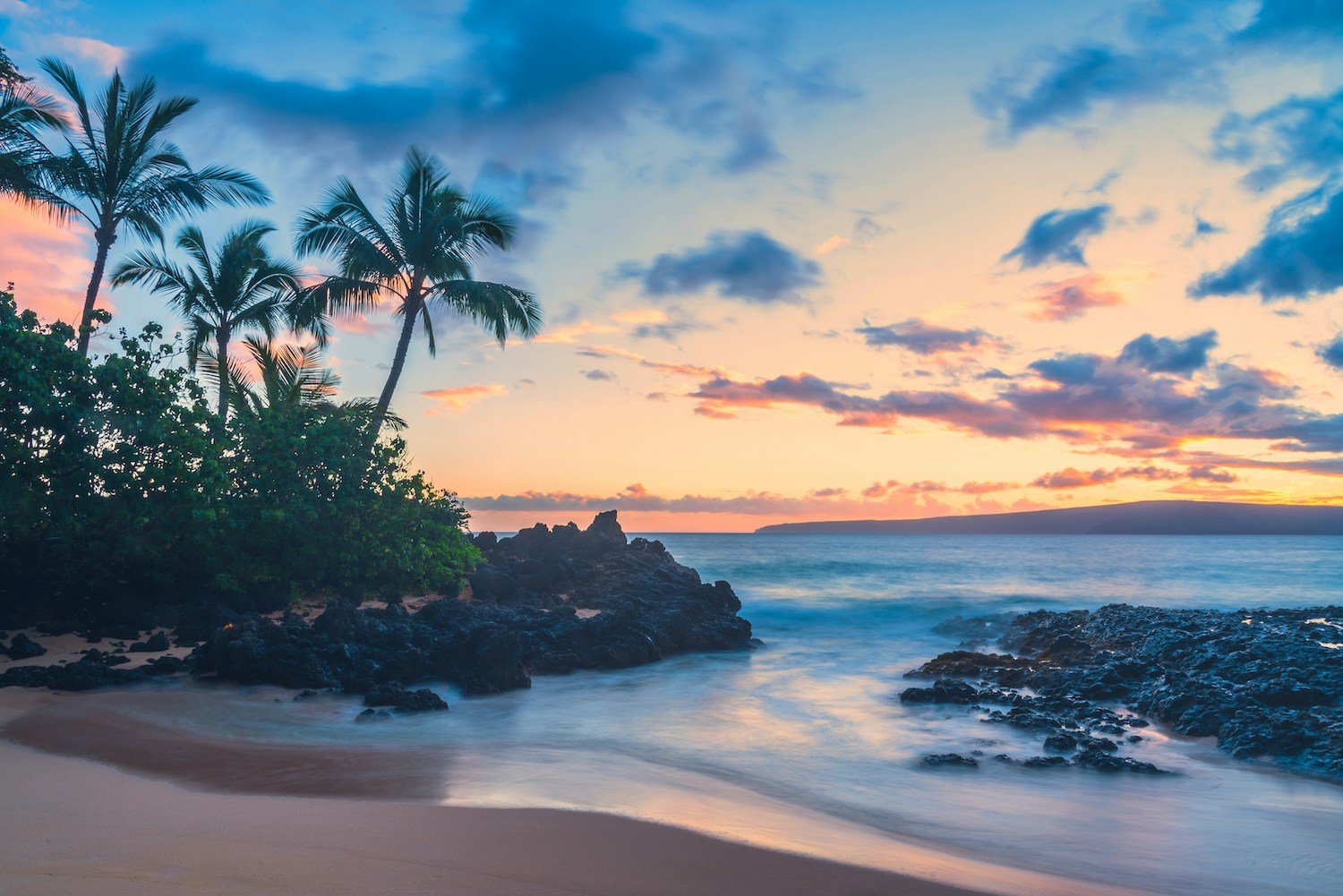
Understanding Current Hawaii Medical Marijuana Laws and Recent Changes
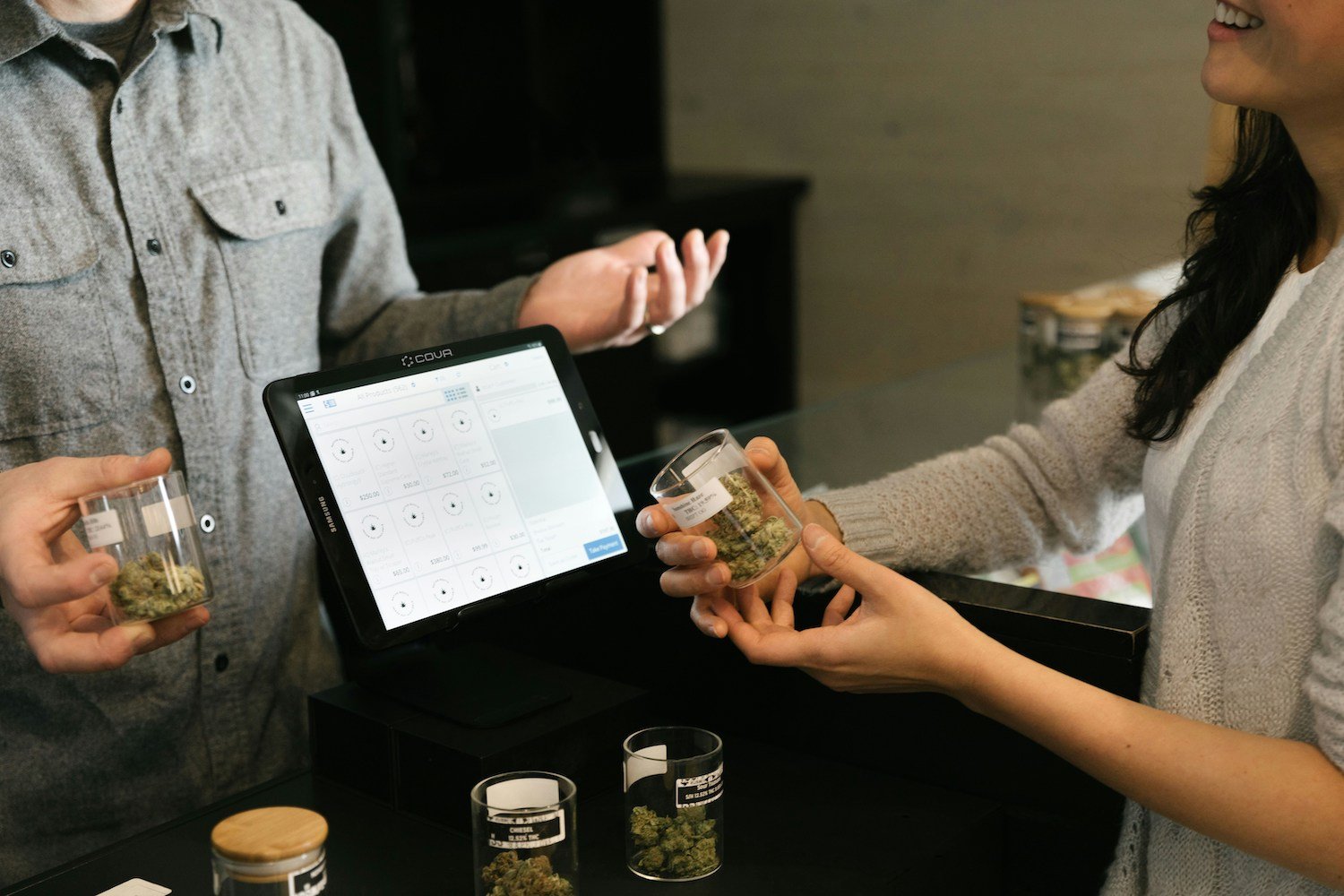
Photo by Cova Software
Hawaii’s medical marijuana laws saw major changes in 2025, including the passage of HB 302, which greatly expanded qualifying conditions and allowed telemedicine appointments for new certifications. Patients, caregivers, and businesses need to understand these updates to stay compliant and informed. Here’s what this guide will cover:
- Expanded caregiver cultivation rights and patient access improvements
- Full provider discretion over qualifying conditions
- New authorization for telemedicine evaluations
- New expungement rules for marijuana offenses
- Upcoming regulations for hemp and CBD products
- The current status of recreational cannabis and legalization efforts
- How to apply for a medical marijuana card in Hawaii
Is Weed Legal in Hawaii?
Hawaii was one of the first states to legalize medical marijuana in 2000, establishing a program that allowed qualifying patients to use and cultivate cannabis with a doctor’s recommendation. Over the years, the program has grown to include licensed dispensaries, expanded caregiver rights, and new regulatory frameworks. While the system originally relied on a restrictive list of qualifying conditions, recent reforms have modernized access and improved patient care.
The Status of Recreational Weed in Hawaii
Recreational cannabis remains illegal in Hawaii, despite significant debate and legislative efforts. In 2025, bills like HB 1246 and SB 1613 aimed to legalize adult-use cannabis but ultimately stalled in committee, reflecting continued divisions among lawmakers. Meanwhile, SB 319, which would have increased the decriminalized possession limit to reduce criminal penalties, was narrowly defeated in the Senate. This means adult-use sales remain prohibited, and possession over small decriminalized amounts can still result in criminal charges, while cultivation for personal non-medical use remains illegal.
Apply for a Medical Marijuana Card Online Today
Join over 100,000 patients who have chosen Green Health Docs as their medical cannabis doctors. We have a 99% approval rate and offer a 100% money back guarantee!
Who Is Eligible for a Hawaii Medical Marijuana Card?
Hawaii Medical Marijuana Requirements
To qualify for Hawaii’s medical cannabis program, patients must be state residents aged 18 or older and obtain a recommendation from a licensed physician or advanced practice registered nurse (APRN). Patients under 18 can participate but need a designated caregiver, typically a parent or guardian, who must also register with the state. Caregivers can help manage medication, cultivate permitted amounts of cannabis, and ensure safe, legal access for the patient. Both patients and caregivers must follow state registration requirements to receive legal protections and access dispensaries.
Hawaii Medical Marijuana Qualifying Conditions
Hawaii law has now fully adopted expanded qualifying conditions under HB 302, which passed in 2025. Instead of a restrictive list, healthcare providers now have full discretion to recommend medical cannabis for any condition they deem appropriate. This change greatly improves access by empowering licensed physicians and APRNs to tailor recommendations to individual patient needs. Patients with conditions not previously recognized, including chronic pain, mental health challenges, or other debilitating symptoms, can now discuss medical cannabis as a legal treatment option with their provider.

Photo by Getty Images
How to Apply for a Medical Marijuana Card in Hawaii
Learn more or apply: Hawaii Medical Marijuana Card Online
Step 1 – Get Evaluated by a Licensed Provider
Patients begin by scheduling an appointment with a Hawaii-licensed physician or APRN who is authorized to recommend medical cannabis. Thanks to HB 302, telemedicine is now fully approved for these evaluations, making it much easier for patients across the islands to access care without traveling for an in-person appointment. During this virtual or in-person consultation, providers review medical history, symptoms, and determine if cannabis is an appropriate treatment option. This flexible, patient-centered approach helps ensure that all residents can get timely, convenient access to certification.
Step 2 – Register with the Hawaii Medical Cannabis Registry Program
After obtaining a valid recommendation, patients and any designated caregivers must register with the Hawaii Department of Health Medical Cannabis Registry Program. This process includes submitting the provider’s certification, personal identification, and other required documentation through the DOH system. Once approved, patients receive a 329 Card (registry identification card) that legally protects them when purchasing, possessing, or cultivating cannabis within state guidelines. Registration is mandatory for legal protections and access to licensed dispensaries.
Step 3 – Purchase from a Licensed Dispensary
With a valid registry ID, patients can buy cannabis products from Hawaii’s network of 25 licensed dispensaries located on the islands. These dispensaries offer a variety of DOH-regulated products designed to meet medical needs safely. However, Hawaii law strictly prohibits transporting cannabis between islands except for limited testing purposes, meaning patients must purchase and use cannabis on the same island where they are registered. This rule ensures better oversight but also highlights challenges for patients living in areas with fewer dispensary options.
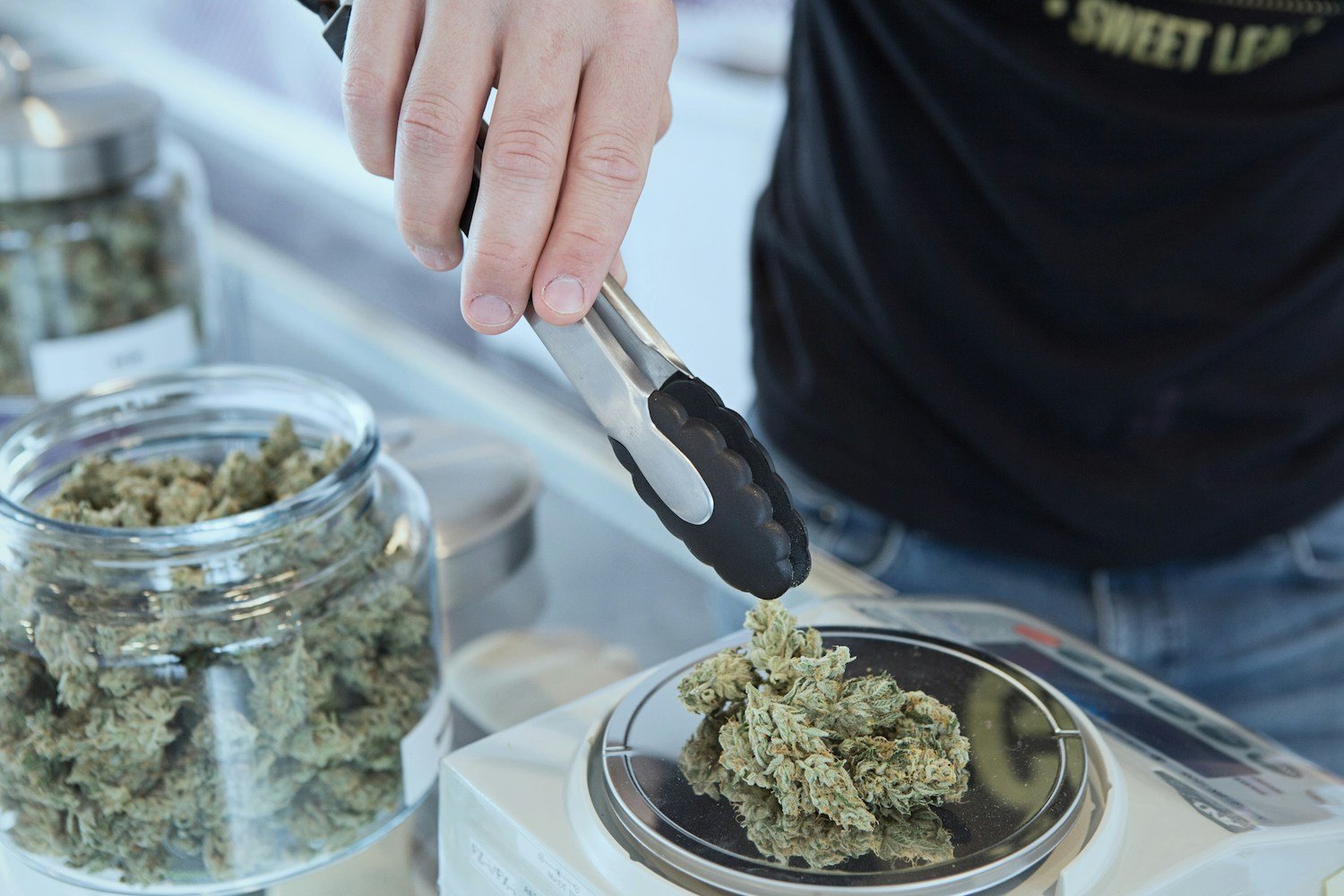
Photo by Budding
Recent Changes to Hawaii Medical Marijuana Laws
Expanded Caregiver Cultivation Rights (SB 1429, Signed 2025)
Governor Josh Green signed SB 1429 in 2025 to expand caregiver cultivation rights significantly, directly responding to patient advocacy concerns. Previously, caregivers were limited to serving only one patient, restricting access for those relying on homegrown medicine. SB 1429 increases this limit to five patients per caregiver, enabling more efficient and sustainable cultivation practices for those unable to grow for themselves. The law also removes a prior sunset clause, ensuring these expanded rights remain in place permanently unless amended by future legislation.
Expedited Expungement Process (HB 132, Signed 2025)
HB 132 streamlines the expungement process for people with past marijuana-related offenses by removing cannabis-specific distinctions in Hawaii’s expungement laws. This change means that marijuana convictions are now treated similarly to other Schedule V drugs, making it easier for eligible individuals to clear their criminal records. Advocates argue that this is a vital step toward addressing the long-term consequences of outdated cannabis laws, helping people secure housing, jobs, and education opportunities. The new law reflects Hawaii’s broader shift toward a more compassionate, rehabilitative approach to past cannabis offenses.
Hemp Product Regulation (Effective 2026)
Hawaii passed legislation in 2025 that will require retailers and distributors of hemp-derived products to register with the state starting January 1, 2026. This measure is designed to regulate the rapidly growing market for hemp products containing psychoactive cannabinoids such as Delta-8 and Delta-10 THC. Under the new rules, the Department of Health will have authority to fine non-compliant businesses and seize unregulated THC products, ensuring greater consumer safety and transparency. Lawmakers hope this regulation will close legal loopholes and prevent the sale of untested, potentially unsafe products.
Proposals to Expand Access (HB 302, Passed Senate 2025)
HB 302 has now become law, transforming access to medical cannabis in Hawaii. The law eliminates the restrictive qualifying conditions list and instead allows any condition a certifying provider considers appropriate to qualify for medical use. It also permanently authorizes telehealth for new patient certifications, improving access for residents on neighbor islands and in rural communities. While the law has improved flexibility and convenience for patients, some concerns remain over provisions granting the Department of Health access to patient records without a warrant.
CBD Store Crackdown Proposals (HB 302, HB 1482)
With HB 302 now law, Hawaii has enacted stricter regulations on stores selling CBD and hemp-derived products to ensure consumer safety and product transparency. Retailers must obtain specific state licenses, comply with new labeling and testing standards, and avoid selling unregulated THC products. The Department of Health now has the authority to seize illegal products and shut down non-compliant businesses, targeting the gray market for untested or misleading cannabinoid products. Supporters argue these measures are vital to maintaining a safe, regulated industry and protecting consumers, while critics note the need for clear guidance to help small businesses adapt.
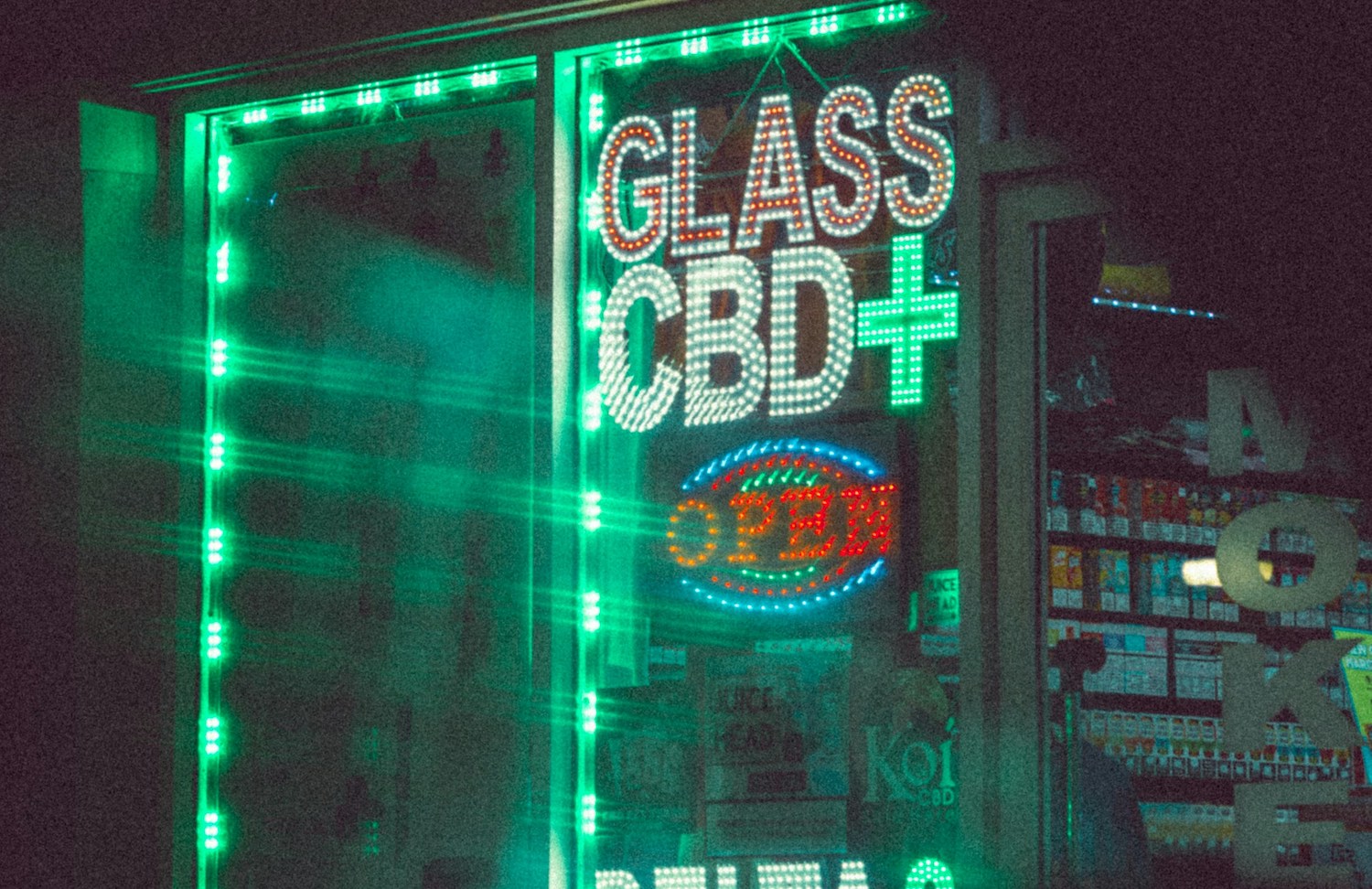
Photo by Mahavir Shah
Hawaii Medical Marijuana Program Trends and Challenges
Decline in Registered Patients
Hawaii’s Medical Cannabis Registry Program has experienced a decline in patient enrollment over the past year, with numbers dropping from over 31,500 in February 2024 to just under 29,800 in February 2025. This decline raises concerns about access, affordability, and whether the current qualifying conditions list is too restrictive for many patients in need. Advocates argue that expanding qualifying conditions and streamlining registration could help reverse this trend and ensure more residents can benefit from medical cannabis. The state continues to evaluate these issues as part of its broader efforts to modernize the program.
Dispensary Operations
Hawaii has 25 licensed dispensaries distributed across its islands, offering patients regulated, lab-tested cannabis products for a variety of medical needs. However, strict rules on inter-island transport create challenges for patients who may live on one island but want to access products or dispensaries on another. This limitation forces patients to plan carefully and often pay higher prices if local options are limited. Policymakers continue to weigh whether easing inter-island transport restrictions could improve patient access while maintaining necessary safety controls.
Federal Law Conflicts
Despite Hawaii’s state-level legalization for medical use, cannabis remains illegal under federal law, creating significant challenges for patients and businesses. This conflict impacts banking access, with many dispensaries forced to operate primarily in cash, increasing security risks and complicating payment systems. It also complicates employment rights and transportation, as cannabis possession on federal property such as airports remains strictly prohibited. Navigating these federal-state contradictions remains one of the largest hurdles for Hawaii’s legal cannabis industry.
Understanding Hawaii’s Medical Cannabis Caregiver Rules
Who Can Be a Caregiver?
In Hawaii, caregivers must be at least 18 years old and register with the Department of Health to legally assist medical cannabis patients. They play a crucial role for minors or adults who cannot manage their own cannabis use due to health conditions or disabilities. Caregivers are responsible for acquiring, transporting, and sometimes cultivating cannabis within legal limits on behalf of their patients. This designation helps ensure safe, legal access for vulnerable patients who rely on others for their medical care.
Recent Changes to Caregiver Cultivation Limits
In 2025, the passage of SB 1429 expanded caregiver cultivation rights, allowing them to serve up to five patients instead of just one. This change acknowledges the vital role caregivers play in meeting patient needs, especially in rural or underserved areas with limited dispensary access. By enabling larger cultivation operations, the law supports consistent, affordable supply for patients who rely on homegrown medicine. Removing the previous sunset clause ensures these expanded rights will remain in effect indefinitely unless further amended.
Responsibilities and Legal Protections for Caregivers
Caregivers must comply with all registry rules, including possession and cultivation limits, to maintain their legal protections. They are responsible for ensuring that cannabis is only used for the registered patient’s medical needs and cannot divert it for unauthorized use. Registered caregivers receive immunity from state prosecution as long as they follow these guidelines and maintain accurate records. This system is designed to balance patient access with public safety and regulatory oversight.
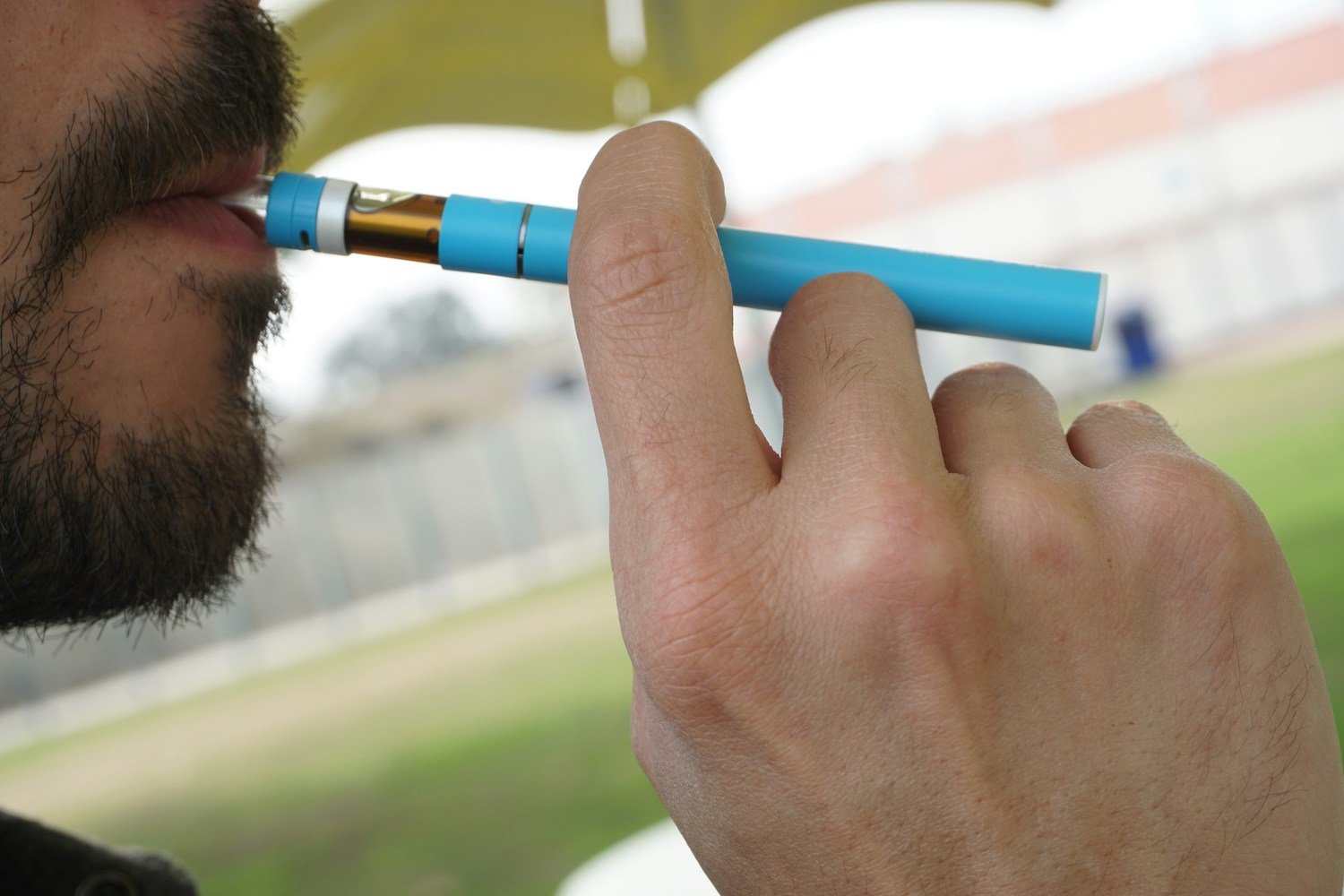
Photo by Elsa Olofsson
Hawaii Hemp and CBD Laws
New Retailer Registration Requirements
Hawaii passed new legislation in 2025 that requires all retailers and distributors of hemp-derived products to register with the state starting January 1, 2026. This rule was designed to bring oversight to a rapidly expanding market that includes products with psychoactive cannabinoids like Delta-8 and Delta-10 THC. By requiring registration, the state aims to ensure these products meet safety and labeling standards and that retailers understand their responsibilities. Ultimately, the goal is to create a safer, more transparent marketplace for consumers while preventing unregulated or potentially harmful products from being sold.
Enforcement Against Unregulated Products
Beginning in 2026, the Hawaii Department of Health will have expanded enforcement powers to fine non-compliant businesses and seize unregistered or illegal THC products. These rules target the gray market for unregulated hemp-derived cannabinoids that can have psychoactive effects similar to traditional cannabis. Enforcement is intended to protect public health, especially for consumers unaware of potency or contaminants in untested products. Retailers will need to ensure they are compliant to avoid penalties and maintain the integrity of the legal market.
Delta-8 and Other Cannabinoid Regulation
Delta-8, Delta-10, and similar cannabinoids have emerged as popular alternatives to traditional THC, often sold in gas stations or specialty shops without clear oversight. Hawaii’s new regulations aim to close this loophole by treating these cannabinoids similarly to traditional cannabis in terms of safety, testing, and labeling requirements. By enforcing these rules, the state hopes to reduce confusion among consumers and ensure that all psychoactive products are subject to consistent quality standards. Regulators argue that without such rules, the market for these cannabinoids could undermine both public safety and the legal cannabis industry.
Cannabis and Employment in Hawaii
Workplace Policies
Hawaii currently allows employers to maintain their own workplace drug policies, which means many companies can test for cannabis and make employment decisions based on results. This can create challenges for medical cannabis patients who rely on cannabis for treatment but work in roles with strict drug-free requirements. Employers in safety-sensitive industries often maintain zero-tolerance policies due to liability and federal regulations. As a result, patients must carefully review employer policies and consider how cannabis use could impact their job security.
Anti-Discrimination Protections
At this time, Hawaii does not have specific laws protecting medical cannabis patients from workplace discrimination based on their legal use of cannabis. While other states have implemented such protections to balance medical needs with employment rights, Hawaii has yet to pass similar legislation. Advocates argue that patients should not have to choose between effective medical treatment and their livelihood. Future legislative sessions may revisit this issue as part of broader cannabis policy reforms.

Photo by Lo Sarno
Transporting and Traveling with Cannabis in Hawaii
Inter-Island Transport Rules
Hawaii has strict regulations prohibiting the transport of cannabis between islands except in very limited circumstances, such as shipments between licensed dispensaries and certified laboratories for testing. This means patients cannot legally carry their medicine when traveling between islands, posing challenges for those who need consistent treatment while moving within the state. Patients must plan to purchase and consume cannabis on the same island where they are registered. Understanding and complying with these transport rules is essential to avoid legal issues and maintain safe, uninterrupted access to medical cannabis.
Air Travel and Federal Property Warnings
Because airports and airplanes fall under federal jurisdiction, cannabis possession remains illegal in these spaces even for registered medical patients. Attempting to bring cannabis through TSA checkpoints can result in confiscation or legal penalties. Patients should be especially cautious about transporting cannabis to or from any federal property in Hawaii, including military bases and national parks. Staying informed about these restrictions helps prevent accidental violations and ensures that patients stay within the law.
Best Practices for Patients
Patients should always carry their registry ID card and ensure any cannabis products are clearly labeled and purchased from licensed dispensaries. It’s important to store cannabis securely and keep it out of reach of minors and pets. When traveling within the same island, patients should follow possession limits and avoid consuming cannabis in public spaces, where it remains prohibited. By following best practices, patients can maintain compliance with Hawaii law while safely managing their medical treatment.
The Future of Cannabis Legalization in Hawaii
Recent Failed Legalization Bills
In 2025, both HB 1246 and SB 1613 sought to legalize adult-use cannabis in Hawaii but ultimately failed to move forward in the legislature. Despite growing public support, lawmakers remain divided over concerns such as regulatory readiness, public safety, and revenue allocation. These failures highlight the ongoing debate over how best to implement adult-use cannabis policies in the islands. Observers expect the issue to return in future sessions as pressure for legalization continues to build.
Decriminalization Efforts
Hawaii has a partial decriminalization policy that imposes civil fines for possession of small amounts, but efforts to expand these limits also stalled in 2025. SB 319, which aimed to raise the threshold for civil penalties, was narrowly defeated in the Senate, underscoring the challenge of reform even for relatively modest changes. Advocates argue that expanding decriminalization would reduce the burden on the criminal justice system and address social equity concerns. While this proposal failed in 2025, supporters hope to see it reintroduced in future legislative cycles.
Political Climate and Public Opinion
Public opinion in Hawaii shows growing support for cannabis reform, with polls indicating a majority of residents favor legalization for adult use. However, divisions remain among policymakers, law enforcement, and community leaders over how to regulate sales, tax revenues, and public health impacts. The state’s unique geography, culture, and economy add complexity to these debates, making it essential to tailor policies that respect local values. Continued public engagement and careful policy design will be key to building consensus for future legalization efforts.

Photo by Getty Images
Resources for Patients and Caregivers
Hawaii Department of Health Medical Cannabis Program
The Hawaii Department of Health’s Medical Cannabis Program provides essential resources for patients, caregivers, and healthcare providers seeking to navigate the state’s cannabis laws. Their website offers application forms, renewal instructions, and up-to-date rules and announcements about the program. Patients and caregivers can find guidance on registration, cultivation limits, and legal protections to ensure they remain compliant with Hawaii law. Accessing these resources is a critical step for anyone seeking to participate in the medical cannabis program safely and legally.
How to Find Licensed Dispensaries
Hawaii currently has 25 licensed dispensaries spread across the islands, each authorized to sell DOH-compliant medical cannabis products. Patients can find a list of these dispensaries, including locations and hours, through the Department of Health’s website or by contacting local providers. It’s important to purchase only from licensed dispensaries to ensure products meet state testing and labeling requirements for safety and efficacy. Planning ahead and knowing where to buy helps patients maintain consistent access to their medication without legal risk.
Support Groups and Education
Support groups and educational resources are valuable tools for patients and caregivers looking to share experiences and learn more about medical cannabis. Local nonprofits and online communities can help new patients navigate the registration process, discuss treatment options, and stay updated on legal changes. These groups also offer emotional support for people managing chronic conditions, helping reduce the stigma sometimes associated with medical cannabis use. By connecting with others, patients and caregivers can advocate for improvements in Hawaii’s cannabis policies and ensure their voices are heard.
Final Thoughts on Hawaii’s Evolving Cannabis Laws
Hawaii’s medical cannabis program continues to evolve, with 2025 bringing especially significant changes aimed at expanding patient access and modernizing care. With HB 302 now law, providers have full discretion to recommend cannabis for any condition they find appropriate, breaking away from a restrictive list and ensuring more patients can benefit. The legalization of telemedicine for new certifications also makes it much easier for residents statewide to get approved without in-person visits, especially those on neighbor islands or in rural communities. Patients, caregivers, and advocates will need to stay engaged and informed to help shape policies that continue to balance access, safety, and respect for Hawaii’s unique cultural and legal landscape.
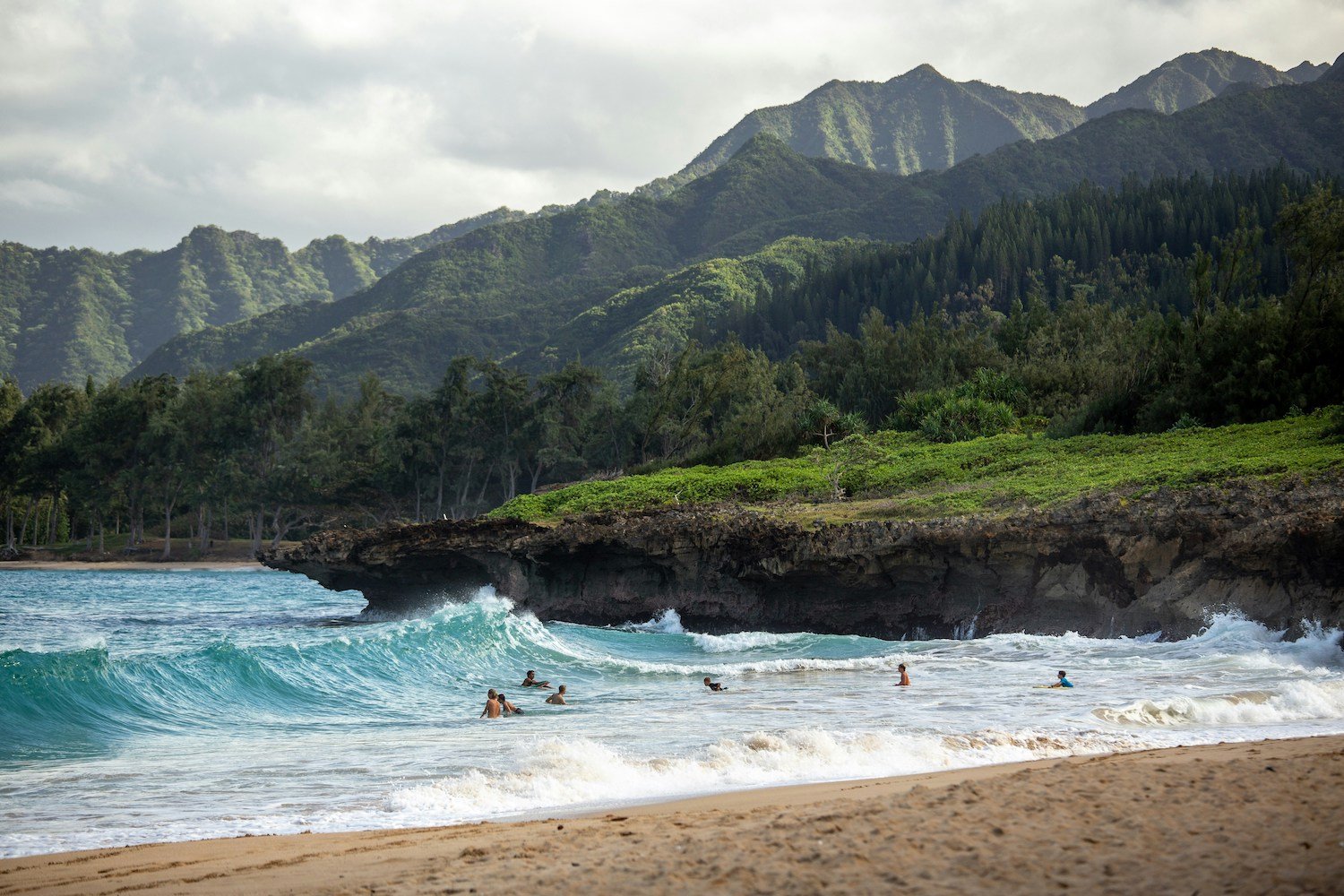
Photo by Luke McKeown
FAQs About Hawaii Medical Marijuana Laws
What is legal for medical patients in Hawaii?
Medical patients with a valid certification and registry ID can legally possess, use, and cultivate cannabis within state limits. They must purchase their medicine from licensed dispensaries on their island of residence and comply with possession and cultivation rules. Registered patients and caregivers receive legal protections under state law. Following these guidelines ensures safe, legal access to medical cannabis in Hawaii.
Can caregivers grow cannabis?
Yes, registered caregivers in Hawaii are legally permitted to cultivate cannabis on behalf of their patients. Following the passage of SB 1429 in 2025, caregivers can now grow for up to five patients at once, expanding access for those unable to cultivate themselves. Caregivers must register with the state and follow strict guidelines on plant limits and distribution. This change helps ensure more patients can benefit from safe, affordable homegrown medicine.
Is recreational weed legal in Hawaii?
No, recreational cannabis use remains illegal in Hawaii as of 2025. Although multiple bills aimed at legalizing adult-use cannabis were introduced this year, they failed to advance in the legislature. Hawaii does have partial decriminalization, meaning small amounts may result in civil fines rather than criminal charges. However, cultivation and sales for recreational use remain strictly prohibited.
What new laws passed in 2025?
Several important cannabis-related bills became law in 2025. SB 1429 expanded caregiver cultivation rights, allowing caregivers to grow for up to five patients. HB 132 streamlined the expungement process for marijuana-related offenses, making it easier to clear old records. HB 302 fully expanded qualifying conditions to any provider-approved diagnosis and authorized telemedicine for certifications, greatly improving access for patients statewide. New rules were also enacted to regulate hemp-derived products starting in 2026, ensuring safety and proper oversight of the growing market.
How do I get a Hawaii medical marijuana card?
To obtain a Hawaii medical marijuana card, patients must first be evaluated and certified by a licensed physician or APRN. They then register with the Hawaii Department of Health’s Medical Cannabis Registry Program, providing necessary documentation and paying any applicable fees. Once approved, patients receive a registry ID card allowing them to purchase from licensed dispensaries and cultivate within legal limits. This process ensures patients can access safe, regulated cannabis treatment legally.
What are Hawaii’s hemp and CBD rules?
Beginning in 2026, retailers and distributors of hemp-derived products will need to register with the state to legally sell their goods. This includes products containing psychoactive cannabinoids like Delta-8 and Delta-10 THC. The Department of Health will have the authority to fine non-compliant businesses and seize unregulated products. These new rules aim to protect consumers by ensuring all products meet safety and labeling standards.
Can I travel with cannabis between islands?
No, Hawaii law prohibits inter-island transport of cannabis except for very limited cases like laboratory testing between licensed facilities. Patients must plan to purchase and use their medicine on the same island where they are registered. Attempting to fly with cannabis through airports, which are federal property, is illegal and can result in penalties. Patients should stay informed about these rules to avoid unintended legal issues.

Photo by Ganapathy Kumar
Get Your Hawaii Medical Marijuana Card Online Today
If you’re ready to get started with medical cannabis in Hawaii, Green Health Docs can help make the process simple and accessible. Our licensed professionals can evaluate your condition via a telemedicine appointment and provide the certification you need to legally use, possess, and cultivate cannabis. We also guide you through the state registration process so you can obtain your official card and access licensed dispensaries with confidence. Apply online today and take the first step toward safe, legal relief tailored to your needs.
 This article has been reviewed by Dr. Anand Dugar, an anesthesiologist, pain medicine physician and the founder of Green Health Docs. Graduating from medical school in 2004 and residency in 2008, Dr. Dugar has been a licensed physician for almost 20 years and has been leading the push for medical cannabis nationwide.
This article has been reviewed by Dr. Anand Dugar, an anesthesiologist, pain medicine physician and the founder of Green Health Docs. Graduating from medical school in 2004 and residency in 2008, Dr. Dugar has been a licensed physician for almost 20 years and has been leading the push for medical cannabis nationwide.
